Webinar is a live event like video presentations, workshops, or seminars with a real-time conversation from anywhere in the world. Webinar software are often used to increase CRM by product based companies like B2B or B2C. Webinars give opportunity to the company to build a more personal relationship with their customers, by answering their complaints or opinions. During COVID-19 pandemic situation, the popularity of virtual marketing has fireworks. From that time so many webinar software has been using widely.
Webinar software are 100% efficient when you pick the right one. That’s why choosing the right webinar software is consciously important for any business.
In this article, we’re going to share some of the best webinar software platforms with their features details, pros and cons. After that, you can easily select the best webinar for your business.
You must need to keep in mind these following points when you’re looking for a best webinar software.
– Audio and video quality
– Customer service
– Amount of participant
– Download or extension
– Dashboard feature
Table Of Contents
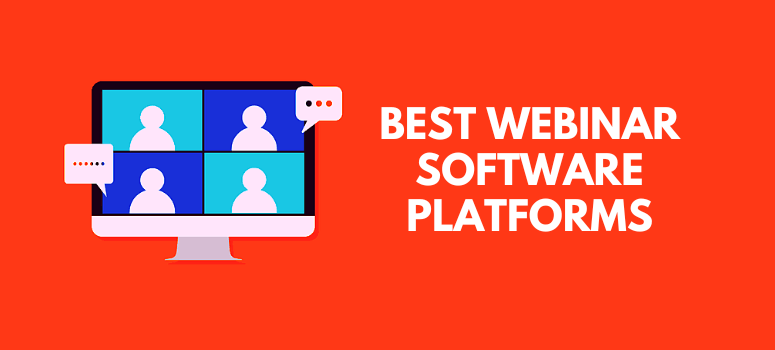
Best Webinar Software Platforms:
Here’s the list of best and top-rated webinar software platforms. Let’s check this out more…
1. Demio
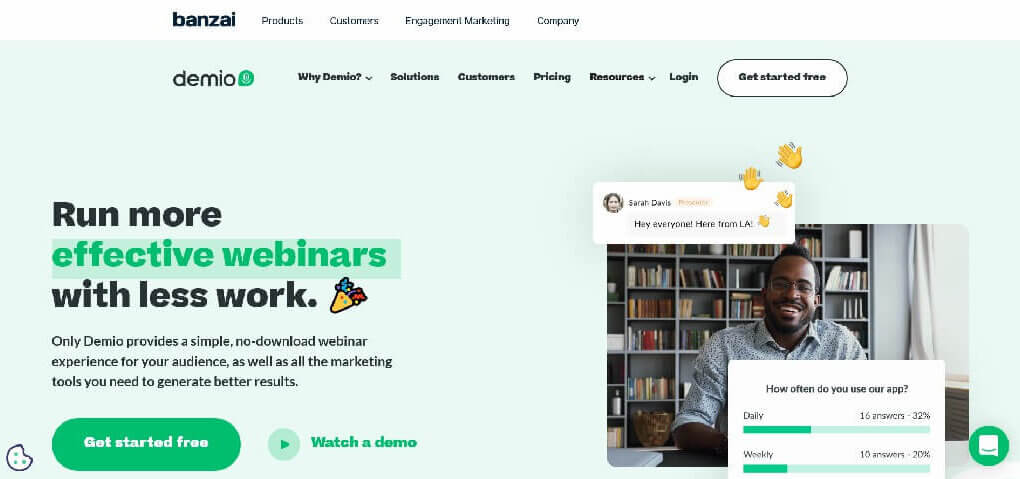
Demio is one of the best cloud based on-demand software. It offers modern and powerful marketing tools for lead generation. It also gives you real-time HD streaming video with an aesthetically appealing platform. Everything you can customize nearly to match your brand.
Pros:
- One time sign-up for an ongoing series of webinars
- Fully automatic, cloud-based events and recordings feature
- Two types of sending message option private and public
- Provide built-in analytics and insights
- Easily integrated with other common marketing tools
Cons:
- No on-demand webinars with the cheapest plan
- Sometimes software does cause bugs in integration with others
2. Livestorm
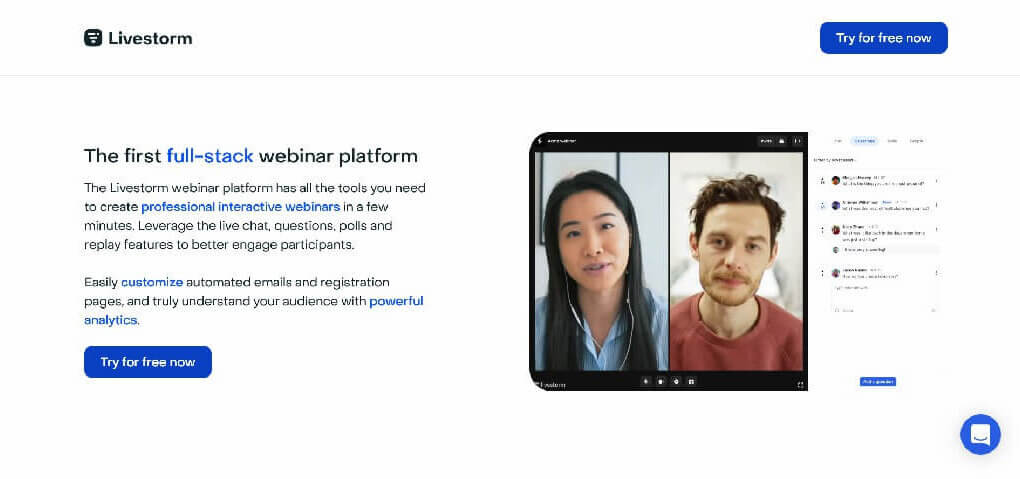
Livestorm is a popular flexible webinar platform for product demo and sales. It’s a great option for companies at any stage. It works on any browser moreover it’s used from any device—PC, tablet, or mobile phone. Livestorm is also focused on customer engagement with activities like polling and Q&A sessions.
Pros:
- Perfect for live training and product demos.
- Easily access to set-up adaptable webinar themes
- 1:1 meetings to qualify leads and improve your sales process
- Automated schedule webinar to replay at set times throughout the day
- Branded registration pages can be generated for each webinar
- Unlimited storage of recording
- Export data as CSV or XLS
Cons:
- Due to browser based software host’s internet connection influences video and audio performance
- Attendees have no way to re-open pop-ups after closing
3. WebinarJam
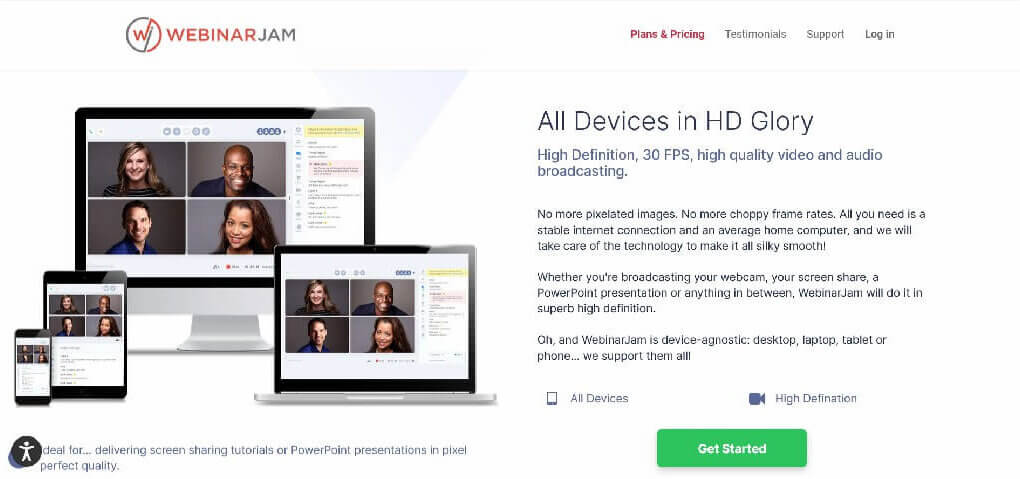
WebinarJam is the best webinar hosting platform for people who have no technical knowledge about virtual meetings. It’s an easy-to-use webinar platform that’s particularly efficient at selling products. It also works smoothly on any browser or device.
Pros:
- Stream to Facebook Live, YouTube Live or WebinarJam’s private JamCast broadcaster, and with password-protection
- Automatically record for every webinar
- Capable to easily handle multiple attendees
- Easy to use for user-friendly dashboards and interfaces
- Quick set up system; it’s take just 60 seconds to set up your webinar
Cons:
- Customer support is not satisfactory
- Lacking integration with third-party AV tools
- Every packages offer only annual pricing
4. MyOwnConference
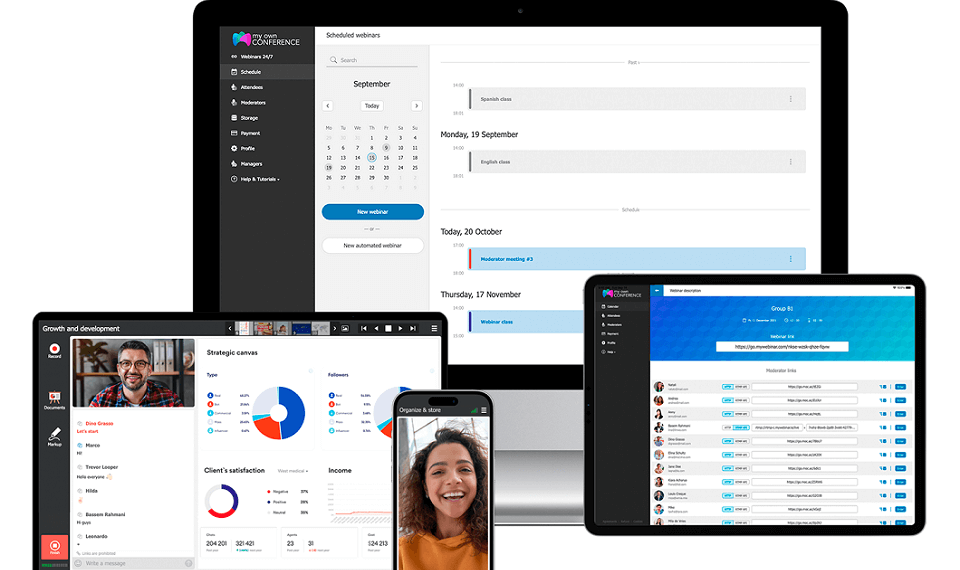
Service MyOwnConference is a webinar platform that provides a wide range of services for easy and comfortable hosting of any online events. No need to download and install additional software to run the webinars because everything works directly from the favorite browser.
Main features:
– Wide coverage: access webinars from anywhere in the world
– Conduct and participate in webinars directly from your favorite browser
– Webinars recording for up to 10 hours in Full HD quality
– Screen sharing, video sharing, youtube sharing, or document sharing directly from the computer
– Proprietary TCP-based technology alternatively to WebRTC for host webinars with poor connections or through VPN
– One-time events or webinar series scheduling
– Webinars branding and customizations
– Automated webinars
Pros:
- Proprietary TCP-based technology for webcasting
- Conducting the webinars without additional software installation
- Any paid plan automatically gets access to all the features, regardless of its cost
Cons:
- Unique TCP-based broadcasting technology is not available for Linux/Unix yet
Pricing: free forever for 20 attendees only, daily plans – from $8, monthly plans – from $25, yearly plans – from $20 per month when you pay annually
5. EverWebinar
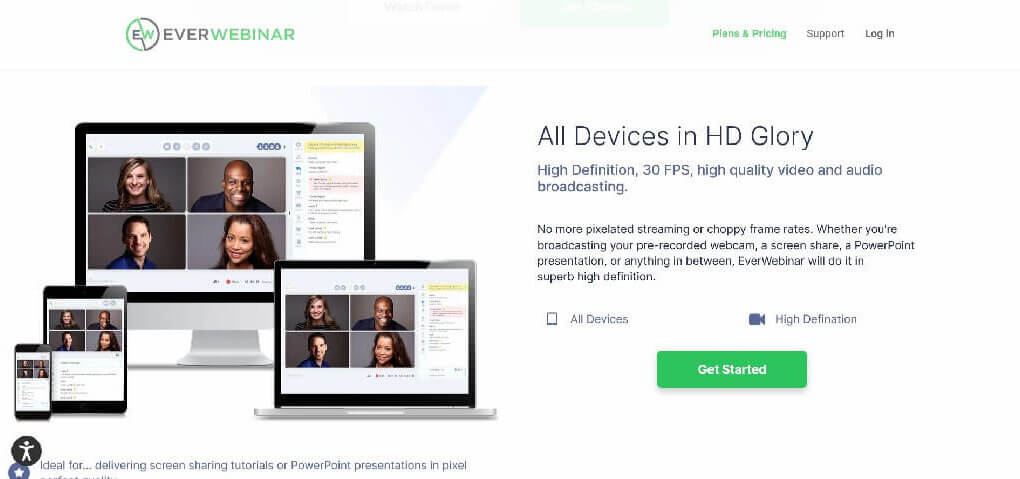
EverWebinar is the best solution for people who are looking to host only automated webinars. Particularly, it’s ideal for small and medium businesses aiming to increase sales through virtual events. However, it is built by the same company as WebinarJam, so its interface and features are very similar.
Pros:
- Easily swap between WebinarJam and EverWebinar.
- Set up blocking date to stop webinar from playing on any desired date or holiday.
- Performance stats in real-time.
- Auto-detection of time zone for all global user
- It allows you to fake your audience count.
Cons:
- There is no custom questions on the registration page
- Occasionally face streaming problem on mobile
6. ClickMeeting
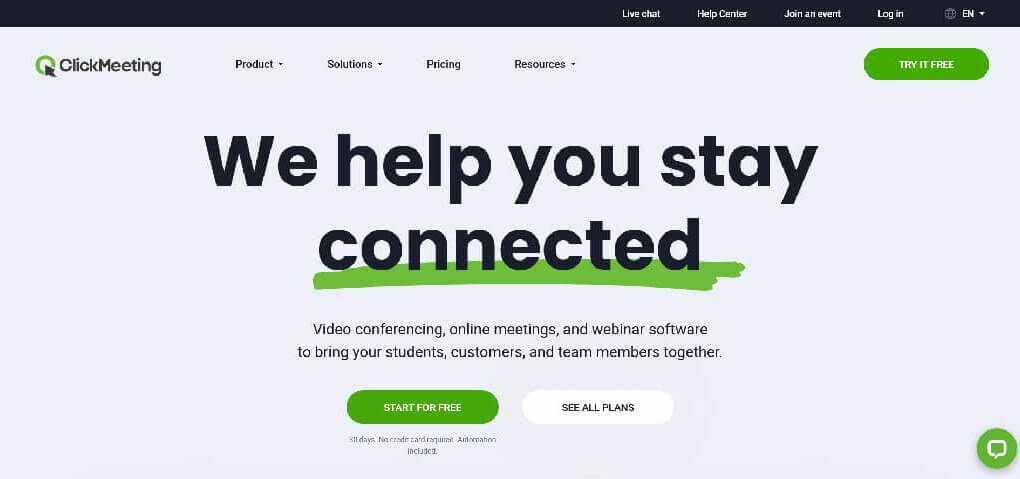
ClickMeeting is a webinar platform whose main key feature is an impressive and user-friendly interface. For that reason, its mostly preferable for web entrepreneurs, small and medium businesses or in-company meetings.
Pros:
- Customized invitations, branded webinars and “waiting rooms”
- Stream live on YouTube or Facebook to enhance engagement
- Webinars & meetings on one platform
- Offers polls and surveys for feedback
Cons:
- It’s has no option to schedule recurring meetings
- Can’t feature images or videos on the registration page
- Lacking of automatic emails on “Live” package
7. WebinarNinja
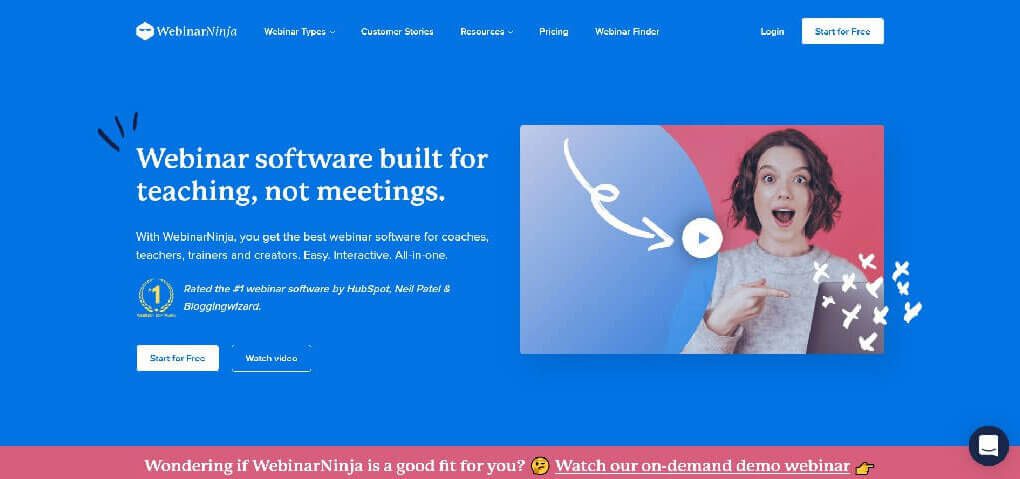
WebinarNinja is a powerful, all-in-one, and easy-to-use webinar software solution. It’s trusted by major brands like AppSumo, Podia, Printful, and more. Moreover, it offers four different types of webinars: live, automated, series, and hybrid.
Pros:
- Live and automated webinars for audience interaction even with the cheapest plan
- Multiple polls running before, during, and after the webinar
- Integrate with over 1,000+ apps via Zapier
- Great looking landing page templates
Cons:
- Poor customer service
- The back-end navigate is not an easy task
- Longer upload of extended presentations
8. Livestream
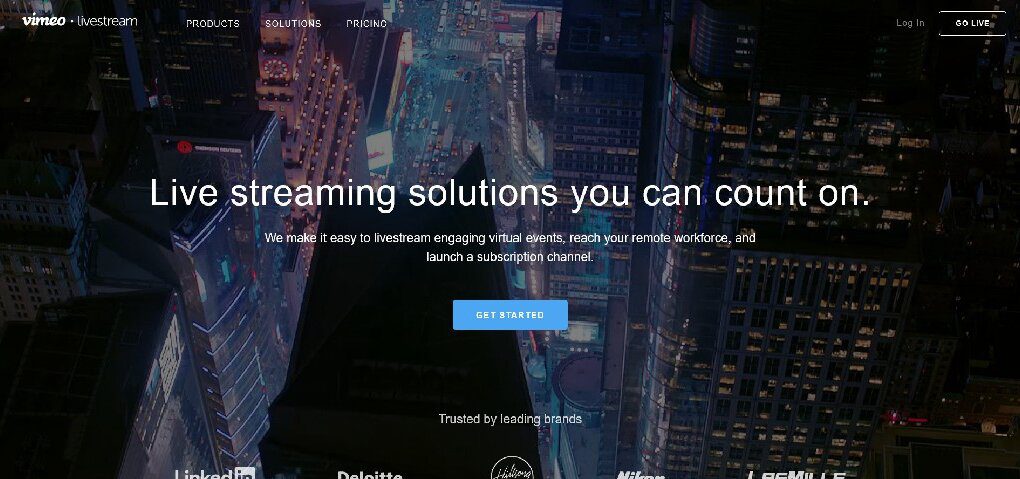
Livestream is one of the best specialized platforms for the corporate clients, big businesses, and educational institutes. There’s no limitation in attendees and storage, So you can use this freely. Therefore with maximum audience coverage it’s still possible to experience the great audio and video quality.
Pros:
- Satisfactory customer support
- Professional production suite for film crews and production exports
- Unlimited storage and viewers
- Pay-Per-View feature for monetizing events
- You can privatize your events.
Cons:
- They have no offer for a free trial
- Lacking of audience engagement features such as surveys or polls
9. WebEx
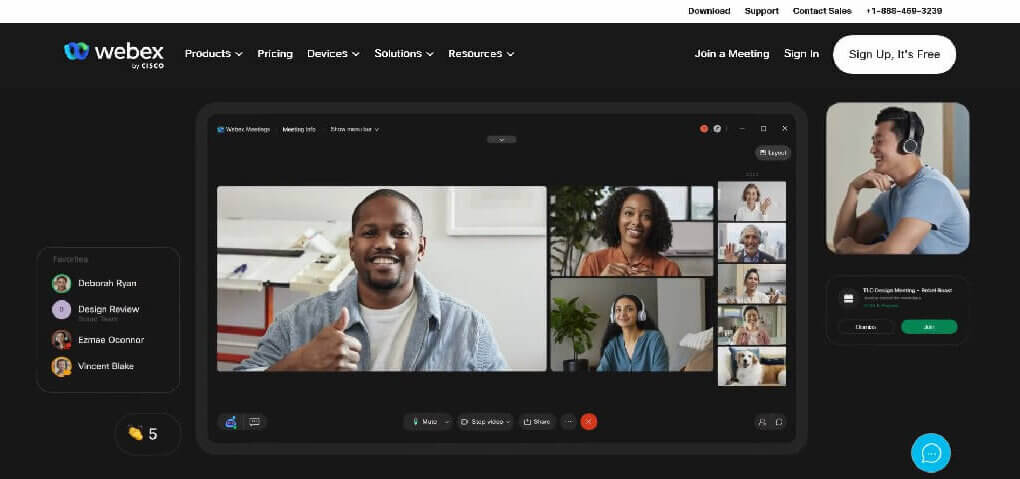
Webex is a Cisco product, which combines a wider range of features for holding online meetings, events, training sessions, interactive presentations and team collaboration. It is also comes with some impressive features, along with superior speed and guarantee of data security as well.
Pros:
- Provide a wide range of live events, meetings and training sessions
- Screen-sharing, live chat, Q&A sessions etc.
- Superv HD video and audio quality
- It has a mobile app
- Able to share files and apps for a better workflow
Cons:
- Here is no webinar marketing tools
- It’s not suitable for consumer virtual events
10. GetResponse
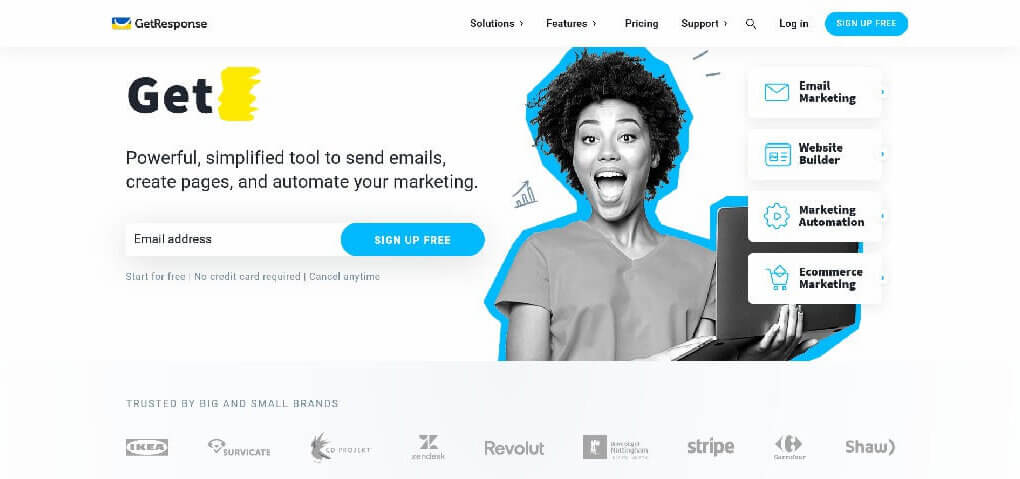
GetResponse is an email marketing based all-in-one marketing webinar tool. For this reason, you get the email database and webinar tool under the same roof. It is capable of setting up a seminar room within three minutes.
Pros:
- Enhance the audience by YouTube integration
- Spontaneously customize your webinar URL
- Automatic send mail to registered email
- Videos, live chat and Text chat feature for engage viewers
- Tracks conversions stats and get detailed audience statistics
Cons:
- Customer care without phone support
- Complicated package pricing structure
- Only 1000 contact space in Free trial plan
11. Zoom
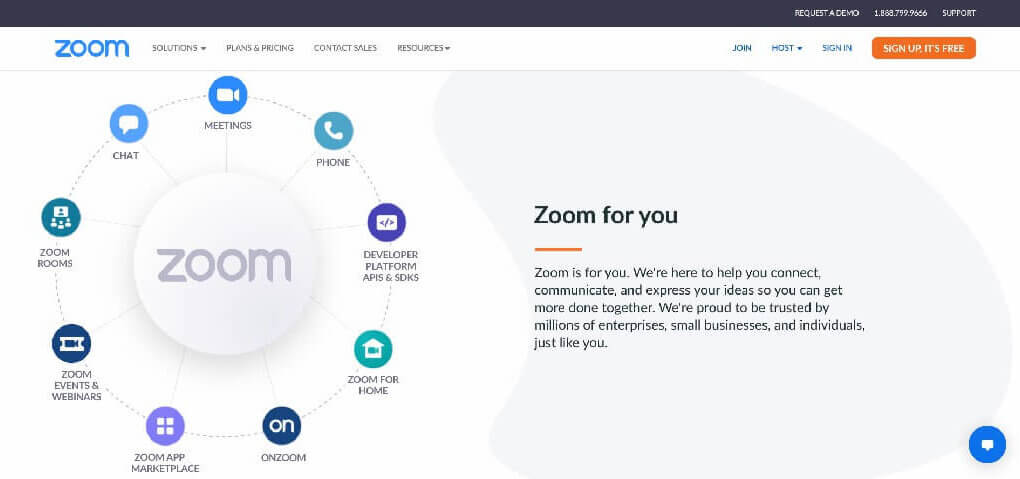
Zoom is the most widely used webinar software for video conferencing on the market today. After the last two years, this one needs no introduction. Most of the clients chose this platform as the best free solution because it offers a genuine no-cost plan. Moreover, it’s entirely cloud-based, and user-friendly interface that makes it easy for its users.
Pros:
- Impressive features like HD video and audio, screen sharing, hand-raising, and live chat
- Basic free plan allow up to 100 participants with 40 minutes limit on group meetings
- User-friendly and easy to use navigable dashboard
- Live stream on Facebook Live and YouTube
- Host able to controls Mute/unmute speakers for all attendees
Cons:
- It’s not a marketing based webinar platform
- Interface navigation can be fully puzzling
We discussed some great webinar platforms on this list which come with impressive features and interface. After that, Choosing the best webinar software is not a difficult task. To pick the right webinar platform depends on your specific requirement like audience size, storage, budget, marketing goods and other factors.
